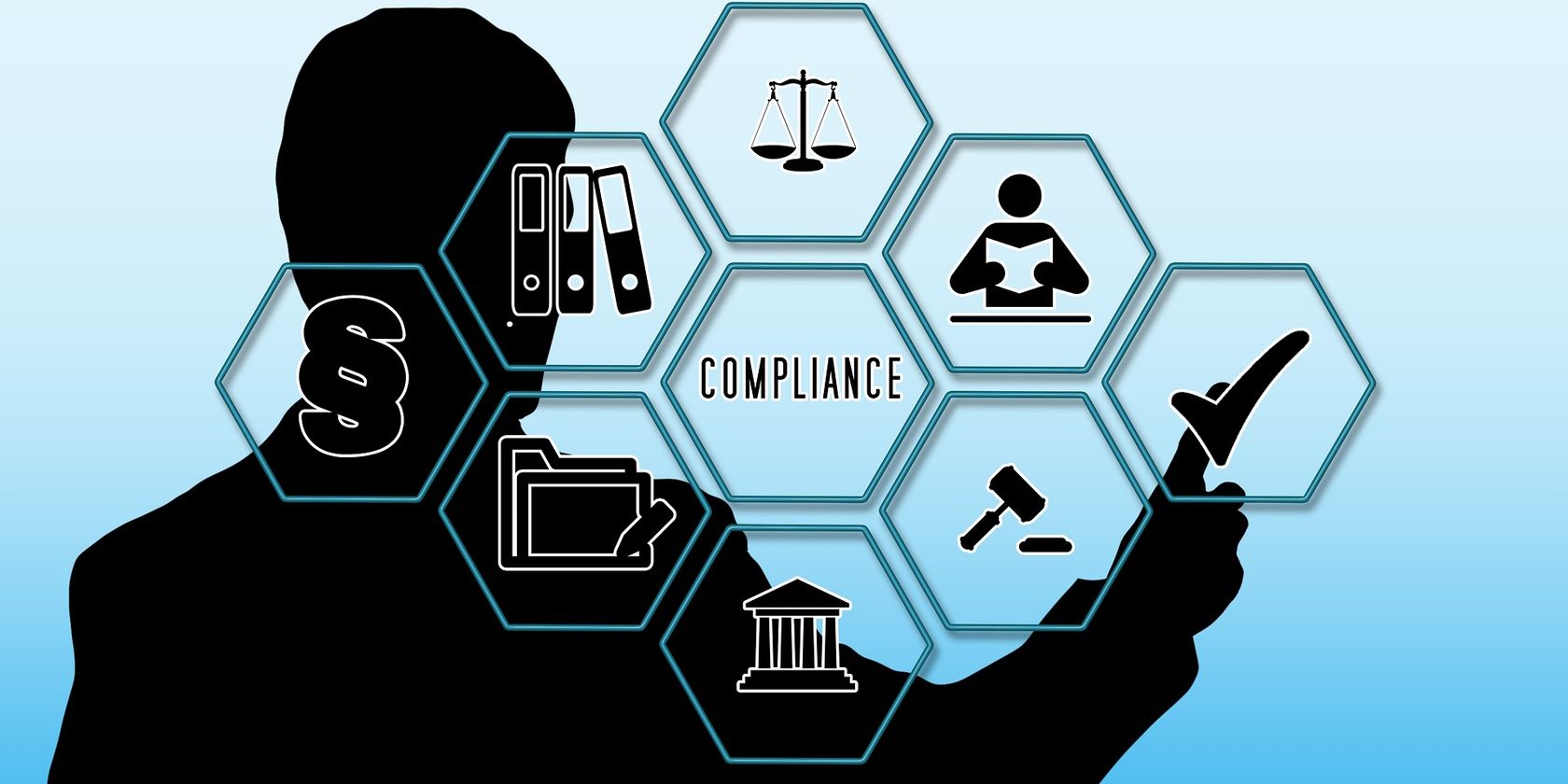The arrival of cryptocurrency is broadly considered one of many greatest game-changers within the twenty first century. Its international attain and decentralized construction make it an progressive monetary system with the potential to upend practices within the monetary sector and provides individuals extra management over their cash.
Nonetheless, there’s a must deal with some issues and challenges—a technique to take action is through the use of cryptocurrency compliance.
What Is Cryptocurrency Compliance?
Cryptocurrency was created to fight the challenges of the standard monetary system. Nonetheless, crypto is not good, and there have been quite a few information of fraudulent transactions, crypto cybercrime, and unlawful misuse of digital property. In consequence, governments and regulators designed cryptocurrency compliance to forestall these crimes.
Cryptocurrency compliance ensures that crypto buyers and corporations meet sure requirements and laws to examine the actions of monetary fraudsters and cyber criminals. These guidelines and requirements are totally different for numerous crypto niches. Nonetheless, the compliance requirements all goal to cut back fraud throughout crypto.
A few of the parts of cryptocurrency compliance are anti-money laundering (AML), know what you are promoting (KYB), know your buyer (KYC), know your transactions (KYT), taxation, and buyer due diligence (CDD).
3 Key Compliance Parts in Cryptocurrency
This is a overview of three important parts of cryptocurrency compliance.
1. Anti-Cash Laundering (AML) Laws
In crypto, AML laws stop utilizing custodian companies and cryptocurrency exchanges for cash laundering actions. These insurance policies, legal guidelines, and guidelines hinder cyber criminals from altering unlawfully acquired crypto tokens and property into money.
The Monetary Motion Process Pressure (FATF) determines the worldwide AML laws requirements. In 2014, FATF launched its Up to date Cryptocurrency AML Steerage [PDF]. Then, different regulatory our bodies, together with the European Fee and america Monetary Crimes Enforcement Community (FinCEN), built-in many of the FATF’s AML laws.
Cryptocurrency exchanges, decentralized finance (DeFi) protocols, stablecoin issuers, and the perfect NFT marketplaces implement these AML laws. They examine, monitor, and try and thwart any suspicious transactions that may be linked to terrorist financing or cash laundering.
These are some AML laws:
- All cryptocurrencies should make use of crypto KYC compliance in a risk-based method. People with a high-risk profile should bear stiffer crypto KYC compliance protocols, whereas these with a low-risk profile can bear lighter KYC protocols.
- Crypto exchanges have to observe prospects commonly.
- Prospects can’t be politically uncovered individuals (PEPs).
- There have to be common screening to make sure prospects do not have worldwide sanctions.
2. Know Your Buyer
Know your buyer (KYC) laws require that centralized cryptocurrency platforms establish and confirm newly registered prospects. This enables the cryptocurrency establishment to evaluate how a lot of a threat the shopper poses when it comes to monetary and cybercrime. An trade with out KYC is among the a number of indicators of a fishy cryptocurrency platform.
In the course of the verification course of, cryptocurrency establishments gather and retailer customers’ personally identifiable info (PII). Then, they scrutinize them to eradicate dangers.
Lastly, these platforms affirm the identification of the people on official databases with info on sanctioned people and politically uncovered individuals.
As soon as prospects are declared risk-free, they obtain entry to carry out actions on the crypto platform. KYC in crypto helps stop felony actions like cash laundering, evasion of tax, and terrorist financing.
3. Know Your Enterprise
Know what you are promoting (KYB) is a crypto compliance construction just like KYC. The one distinction is that KYC is for people, and KYB is for crypto companies.
With KYB, crypto companies legally receive details about their purchasers and companions. Throughout this course of, info regarding the final useful proprietor (UBO) of the enterprise is collected, potential companions and purchasers are verified, and decision-makers, administrators, shareholders with greater than 25% of the full shares, and beneficiaries are verified through the course of.
Crypto companies are additionally required to confirm the supply of revenue of the enterprise executives and house owners and whether or not they’re politically uncovered individuals or on a sanctions checklist. Sometimes, these companies should additionally present an in depth narration of all their actions, the typical yearly and month-to-month turnover, and different essential authorized info.
What Laws Govern Cryptocurrency?
Completely different areas on the earth have their regulatory our bodies. A few of the laws are comparable, whereas others are totally different. Listed here are just a few laws governing cryptocurrency.
Monetary Crimes Enforcement Community
As a result of cryptocurrencies are a type of cash, the Monetary Crimes Enforcement Community (FinCEN) mandates that they be topic to laws. FinCEN affords crypto service suppliers licenses; the community requires that they implement AML compliance protocols and commonly maintain information of occasions and transactions whereas submitting reviews.
Securities and Change Fee
The Securities and Change Fee (SEC) views cryptos as money, securities, and money equivalents and subsequently requires the registration of crypto exchanges. The SEC additionally mandates that people transacting in cryptos comply with applicable SEC laws and securities legal guidelines.
Commodity Futures Buying and selling Fee
The Commodity Futures Buying and selling Fee (CFTC) considers crypto tokens as commodities identical to gold and different monetary merchandise and, as such, has guidelines governing crypto transactions.
The Significance of Cryptocurrency Compliance
Cryptocurrency compliance advantages all stakeholders within the trade, together with prospects, crypto companies, exchanges, wallets, and crypto custodians.
- Cryptocurrency compliance has considerably decreased cash laundering, terrorism financing, and different monetary crimes and fraudulent actions through crypto.
- It additionally decreases corporations’ authorized dangers through the well-robust KYC due diligence protocols.
- Cryptocurrency compliance boosts the market stability of cryptos. The crypto market can change with information of nameless and felony transactions, affecting the costs of crypto property.
- Cryptocurrency compliance gives a clearer image of the gross sales and purchases of cryptos.
- Given the large each day volumes of transactions, cryptocurrency compliance facilitates seamless operations.
Challenges in Attaining Cryptocurrency Compliance
Like each evolving innovation, cryptocurrency compliance is laden with quite a few challenges, together with the next:
- The out there pre-existing habits profiles of shoppers are inadequate. Attempting to determine people’ atypical and typical habits beforehand and from scratch may be very tough.
- The crypto trade is riddled with continually rising applied sciences and traits. This births an ever-changing must continually replace compliance requirements to mitigate cash laundering and rip-off dangers.
- Designing laws to suit all types of crypto property is tough and time-consuming. Moreover, totally different areas have totally different regulatory our bodies, which may pose a problem relating to variations in compliance laws.
Crypto Compliance Is Not So Completely different from the Norm
The first purpose for creating cryptos was the necessity for decentralization and anonymity in monetary transactions. Governments and conventional monetary establishments management and affect how you employ your cash by laws and taxation. Nonetheless, the cryptosystem is not all good.
Crypto compliance seeks to handle the downsides of digital property, however evidently the first goal of cryptocurrency is being defeated by crypto compliance. Whereas attempting to good the crypto trade, crypto compliance seeks to manage and affect how you employ your digital property.





